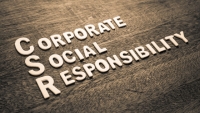Lessons from a Blockbuster Section 1981 Jury Verdict
Written by Patricia CollinsReprinted with permission from the April 14th edition of The Legal Intelligencer. (c) 2021 ALM Media Properties. Further duplication without permission is prohibited.
42 U.S. § 2000e, et seq. (“Title VII”) imposes caps on damages that limit the recovery for plaintiffs in employment discrimination cases. The plaintiffs in Yarbrough, et al v. Glow Networks (United States District Court for the Eastern District of Texas, 4:19-cv-00905) employed an interesting theory to avoid those caps, and the strategy paid off. On February 18, 2022, a Texas jury returned a verdict of $70 Million Dollars for ten race discrimination and retaliation plaintiffs, who asserted claims pursuant to 42 U.S.C. § 1981 (“Section 1981”). The Yarbrough Plaintiffs asserted no claims under Title VII.
The Yarbrough Plaintiffs alleged discrimination in the workplace at Glow Networks. They alleged that Glow Networks treated Africans and African-Americans differently than other employees and subjected them to a hostile environment in several ways. For example, they alleged that Glow Networks monitored their workspaces in a manner that they did not monitor other employees; that they were written up and reprimanded for conduct that Glow Networks ignored in other employees; and, that they did not receive promotions despite recommendations from their managers, and that the promotions went to non-Africans and non-African Americans. The Yarbrough Plaintiffs included white managers of the African and African American employees who reported the alleged discrimination to management. The African and African American plaintiffs also asserted retaliation. Some of the employees were terminated, and others resigned, alleging a constructive discharge. Plaintiffs alleged one count of violation of Section 1981. The case was tried by a jury from February 7, 2022 through February 18, 2022, when the jury returned a verdict. For each of the ten plaintiffs, the jury awarded $2 Million in past pain and suffering damages; $1 Million in future pain and suffering; and $4 Million in punitive damages, resulting in a $70 Million verdict. On April 6, 2022, Glow Networks stated in a Response to plaintiffs’ Motion to Enter Judgment that it intends to file post-trial motions for judgment as a matter of law and for a new trial.
Courts generally analyze claims under Section 1981 and Title VII in the same manner, using the burden-shifting framework set out in McDonnell Douglas Corp. v. Green, 411 U.S. 792 (1973). Castleberry v. STI Group, 863 F.2d 259, 263 (3d Cir. 2017). While both statutes prohibit discrimination on the basis of race, Section 1981 contains no damages cap. The most a plaintiff can recover in “non-economic” compensatory and punitive damages in a Title VII is $300,000.00. 42 U.S.C. § 1981a(b). The complaint in the Yarbrough case does not allege Glow Networks’ number of employees, but assuming the maximum would apply, the damages in the case would have been limited to $3 Million, instead of the $70 Million alleged. This difference alone requires race discrimination plaintiffs to consider asserting claims under Section 1981.
Antheil Maslow & MacMinn, LLP is proud to announce that eight of our attorneys have been selected for inclusion again this year in the 2022 Thomson Reuters Super Lawyers and Rising Stars listing. Each year, no more than 5 percent of the lawyers in the state are selected by Super Lawyers to receive this honor. Super Lawyers, a Thomson Reuters business, is a rating service of outstanding lawyers from more than 70 practice areas who have attained a high degree of peer recognition and professional achievement.
Five Partners of the firm were selected to the 2022 Super Lawyers List: Jessica A. Pritchard, Family Law, who was also selected for the Top 50: 2022 Women Pennsylvania Super Lawyers List”; Elizabeth Fineman, Family Law; Michael W. Mills, Business/Corporate, Estates & Trusts & Tax Law; Joanne M. Murray, Business/Corporate; and Peter J. Smith, Business/Corporate, Real Estate, Estates & Trusts and Nonprofit Law.
Three AMM attorneys were selected to the 2022 Pennsylvania Rising Stars list: Lisa Bothwell, Business/Corporate Law; Stephanie Shortall, Business/Corporate, Real Estate and Trust & Estates Law; and Partner Elaine Yandrisevits, Estate Planning and Administration, with a focus on special needs trust planning.
Elaine T. Yandrisevits has been named a Partner of the law firm of Antheil Maslow & MacMinn, LLP in Doylestown, Pennsylvania. According to Mike Mills, an AMM partner and a member the firm’s executive committee, “Since joining AMM in 2018, Elaine has made indelible contributions to our Trusts and Estates practice group, our firm, and our larger community. She is not only a very skilled lawyer, but a great colleague. We’re proud to have her as a partner at AMM.”
Elaine concentrates her practice on estate planning, trusts and estate administration and Orphans' Court matters with a focus on special needs trust planning and guardianships. She is a frequent speaker on estate planning, estate administration, and special needs planning for continuing legal education and community organizations.
Elaine Yandrisevits can be reached at eyandrisevits@ammlaw.com or 215.230.7500 ext. 160.
Antheil Maslow & MacMinn, LLP is a full-service law firm located in Doylestown, PA. At AMM, we pride ourselves on developing deep relationships with our clients by taking time to understand their goals in order to provide responsive, practical legal advice and aggressive advocacy.
No Safe Harbor in the “Contract Assurances” Required in the EU Directive Proposal
Written by Susan MaslowThe European Commission published the long-awaited Proposal for a Directive of the European Parliament and of the Council on Corporate Sustainability Due Diligence (the “EU Directive”) on February 23, 2022. It has been suggested that text found in the EU Directive “risks making the law ineffective” by implying that companies can fulfil their obligations by simply adding clauses in their contracts with suppliers and verifying compliance with “suitable industry initiatives or independent third-party verification”. The criticism is that the “contractual assurances” and verification required by Items 2(b) and 4 of Article 7, and Items 3(c) and 5 of Article 8 allow companies to shift their responsibilities on to their suppliers and to knowingly get away with harm by conducting ineffective audits or participating in voluntary industry schemes that have failed in the past.
The argument that companies can find an easy safe harbor within the EU Directive is misguided. Such condemnation places undue emphasis on the first two elements to achieve the negation of civil liability under Article 22 and ignores the third factor. A company must prove not only that (i) it used appropriate contract clauses (under to-be-provided Commission guidance), and (ii) it verified compliance, but must also prove (iii) it was reasonable to expect the action taken, including the verification process, “would be adequate to prevent, mitigate, bring to an end or minimize the extent of the adverse impact.” The last element is unfairly discounted by those that fear delivery of a safe harbor to industry influences. In addition, due account is not given to Article 22’s additional text that insists company efforts (or absence of efforts) to remediate any discovered damage and the extent of pre-harm support and collaboration to address adverse impacts in its value chains (or absence of support and collaboration) is also to be considered in determining liability.
Articles 4 to 11, 25 and 26 of the EU Directive impose due diligence obligations on subject companies and address the duty of care required of their directors in setting up and overseeing due diligence. The EU Directive has numerous “Whereas” clauses expressing a desire to incorporate the UNGPs and OECD Guidelines which require shared responsibility between buyers and suppliers. It should not be read as suggesting companies avoid liability by simply demanding conventional representations and warranties from a first-tier supplier without shared responsibility for thorough retrospective and prospective investigations to identify, prevent and end adverse impact. Any company that believes “contract assurances” without a detailed and regularly reviewed corporate strategy to address human rights, climate change and environmental consequences using contracts as one of multiple tools is destined to be found liable for damages.
Perhaps Article 22 with respect to a company’s potential civil liability could be clearer with respect to this point if it included a reference to Articles 4,5 and 6 in lieu of the existing limited reference to the obligations laid down in Articles 7(Preventing potential adverse impacts) and Article 8 (Bringing actual adverse impacts to an end). But Article 12 (Model contract clauses) of the EU Directive includes a promise that the Commission will provide guidance for model contract clauses and Article 13 (Guidelines) states the Commission, in consultation with Member states, stakeholders, the European Union Agency for Fundamental Rights, the European Environment Agency, and appropriate international bodies may issue guidelines for specific sectors or specific adverse impacts. The to-be-developed model contract clauses should reflect the characteristics and obligations found in Version 2 of the Model Contract Clauses (the “MCCs”) drafted by the American Bar Association Business Law Section’s Working Group found here Center for Human Rights. The MCCs include provisions which require:
● a joint responsibility by buyer and seller to engage in human rights due diligence, in line with the UNGPs and the OECD Guidance;
● a commitment by buyer to engage in responsible purchasing practices that will support supplier’s obligations to avoid adverse human rights impacts; and
● in the event of an adverse impact, a joint commitment that: (a) the parties will prioritize victim-centered human rights remediation above conventional contract remedies (that compensate the non-breaching party, not victims); and (b) each party’s participation in remediation shall be proportionate to each party’s causation of or contribution to the adverse impact.
The EU Directive and the right contract clauses and due diligence guidance can change the way supply chains in global markets have worked for centuries. Finally, a real tool to address modern slavery and the environmental destruction of entire communities.
Susan Maslow, a Partner and Co-founder of the law firm of Antheil Maslow & MacMinn, LLP will be a speaker at the April 20th DiCarlo-Court of International Trade CLE program at the University of Illinois Chicago School of Law explaining the Model Contract Clauses that the American Bar Association Working Group has developed over the last 5 years and the growing body of global legislation requiring contract clauses to explicitly address modern slavery and human rights impacts in supply chains. Ms Maslow serves as Co-Chair of the Corporate Social Responsiblity Law Commitee of the ABA Business Law Section.
For over 30 years, Ms. Maslow has concentrated her practice primarily in general corporate transactional work and finance documentation in the areas of Business Transactions, Business Law, Private Finance, Real Estate, Contracts, and Non-Profit Law. She has enjoyed assisting entrepreneurial individuals and privately-held companies in their efforts to structure and implement a great variety of business transactions, including stock and asset acquisitions, banking negotiations, mergers, secured and unsecured financing, real estate and business acquisitions and leases, capital arrangements for hospitals and other health care providers, distributorships, software services and license arrangements and business separations and dissolutions. She is a member of the Pennsylvania and New Jersey Bar Associations.
Ms. Maslow can be reached at smaslow@ammlaw.com or 215.230.7500 ext. 119.
The American Bar Association's Working Group to Draft Model Contract Clauses to Protect Human Rights in International Supply Chains just published its 2019-2021 materials in the most recent issue of The Business Lawyer, Winter 2021-2022. The article is entitled “Balancing Buyer and Supplier Responsibilities Model Contract Clauses to Protect Workers in International Supply Chains, Version 2.0”. Susan Maslow, a Partner and Co-founder of the Bucks County Law Firm Antheil, Maslow & MacMinn, LLP, is Vice Chair of the Working Group.
For over 30 years, Ms. Maslow has concentrated her practice primarily in general corporate transactional work and finance documentation in the areas of Business Transactions, Business Law, Private Finance, Real Estate, Contracts, and Non-Profit Law. She has enjoyed assisting entrepreneurial individuals and privately-held companies in their efforts to structure and implement a great variety of business transactions, including stock and asset acquisitions, banking negotiations, mergers, secured and unsecured financing, real estate and business acquisitions and leases, capital arrangements for hospitals and other health care providers, distributorships, software services and license arrangements and business separations and dissolutions. She received her law degree from Temple University cum laude in 1983 after graduating from Rutgers University (B.A. 1978). She is a member of the Pennsylvania and New Jersey Bar Associations.
Ms. Maslow can be reached at smaslow@ammlaw.com or 215.230.7500 ext. 119.
Susan Maslow, Antheil Maslow & MacMinn, LLP Partner and Co-Chair of the Corporate Social Responsibility Law Committee of the ABA Business Law Section announced two upcoming Continuing Legal Education programs:
• ESG Business Risks and the New Legal and Regulatory Frontier, Showcase CLE (Thursday, March 31, Noon–1:30 PM)
• Understanding the Elements of ESG and Current DOL Guidance on ESG in Plan Investments, CLE (Friday, April 1, 2:00 – 3:00 PM). I am one of the four panelists for this program.
The Spring Meeting of the Business Law Section will take place in Atlanta on March 31-April 2nd, 2022, can be attended virtually or in person and is free to all Business Law Section members.
For over 30 years, Ms. Maslow has concentrated her practice primarily in general corporate transactional work and finance documentation in the areas of Business Transactions, Business Law, Private Finance, Real Estate, Contracts, and Non-Profit Law. She has enjoyed assisting entrepreneurial individuals and privately-held companies in their efforts to structure and implement a great variety of business transactions, including stock and asset acquisitions, banking negotiations, mergers, secured and unsecured financing, real estate and business acquisitions and leases, capital arrangements for hospitals and other health care providers, distributorships, software services and license arrangements and business separations and dissolutions. She received her law degree from Temple University cum laude in 1983 after graduating from Rutgers University (B.A. 1978). She is a member of the Pennsylvania and New Jersey Bar Associations.
Ms. Maslow can be reached at smaslow@ammlaw.com or 215.230.7500 ext. 119.
What to Expect in Your Initial Meeting with a Family Law Attorney
Written by Jennifer Dickerson
Making the decision to contact a family law attorney to address your legal issues is understandably stressful, and can add anxiety to the already painful concerns that have prompted your need for representation and legal advice. Whether your matter is related to divorce, child custody, child support, spousal support, alimony pendente lite, alimony, or equitable distribution matters, knowing in advance what to expect can help you be prepared and raise your comfort level. The information provided here will hopefully take some of the mystery and worry out of taking that first step: the consultation.
Don't be a Grinch - Make the Holidays Enjoyable for Your Children Post Separation
Written by Elizabeth J. Fineman
The holiday season is in full swing with Thanksgiving and Hanukkah already passed and Christmas, Kwanzaa and New Year’s rapidly approaching. What is supposed to be a happy and festive time of the year can feel anything but for parents who are separated or divorced and their children. Here are some suggestions for making the season more enjoyable and stress free - the greatest gift of all.
Children often struggle to enjoy the holidays if they know that the other parent is sad because they will not be together. If the holiday is not your day with the child(ren), you can help by making it clear to them that you are happy for them to celebrate with the other parent and that you will be ok. Even if you are having a hard time, do not put that burden on the children. You can certainly let your friends know that this is a tough time for you and reach out to them for support, but do not let your child(ren) know. Make some plans, even if it is just a movie marathon at home or finishing that book that you have been reading, so that your children know you have plans and are looking forward to the holiday.
On October 26, 2021, Antheil Maslow & MacMinn, LLP Partner and corporate attorney Peter J. Smith was a keynote speaker at the Pennsylvania Institute of Certified Public Accountants’ Transactional Advisory Services Conference Webcast. Mr. Smith presented on “The Mergers & Acquisitions Landscape: Post-COVID and Beyond”. Mr. Smith’s presentation offered an overview of key factors contributing to the recent increase in deal flow, the effects of COVID on the marketplace, and a discussion on what the near future may bring to the transactional landscape.
Antheil Maslow & MacMinn, LLP is a full-service law firm located in Doylestown, PA.
Peter J. Smith can be reached at psmith@ammlaw.com or 215.230.7500 ext. 134.





